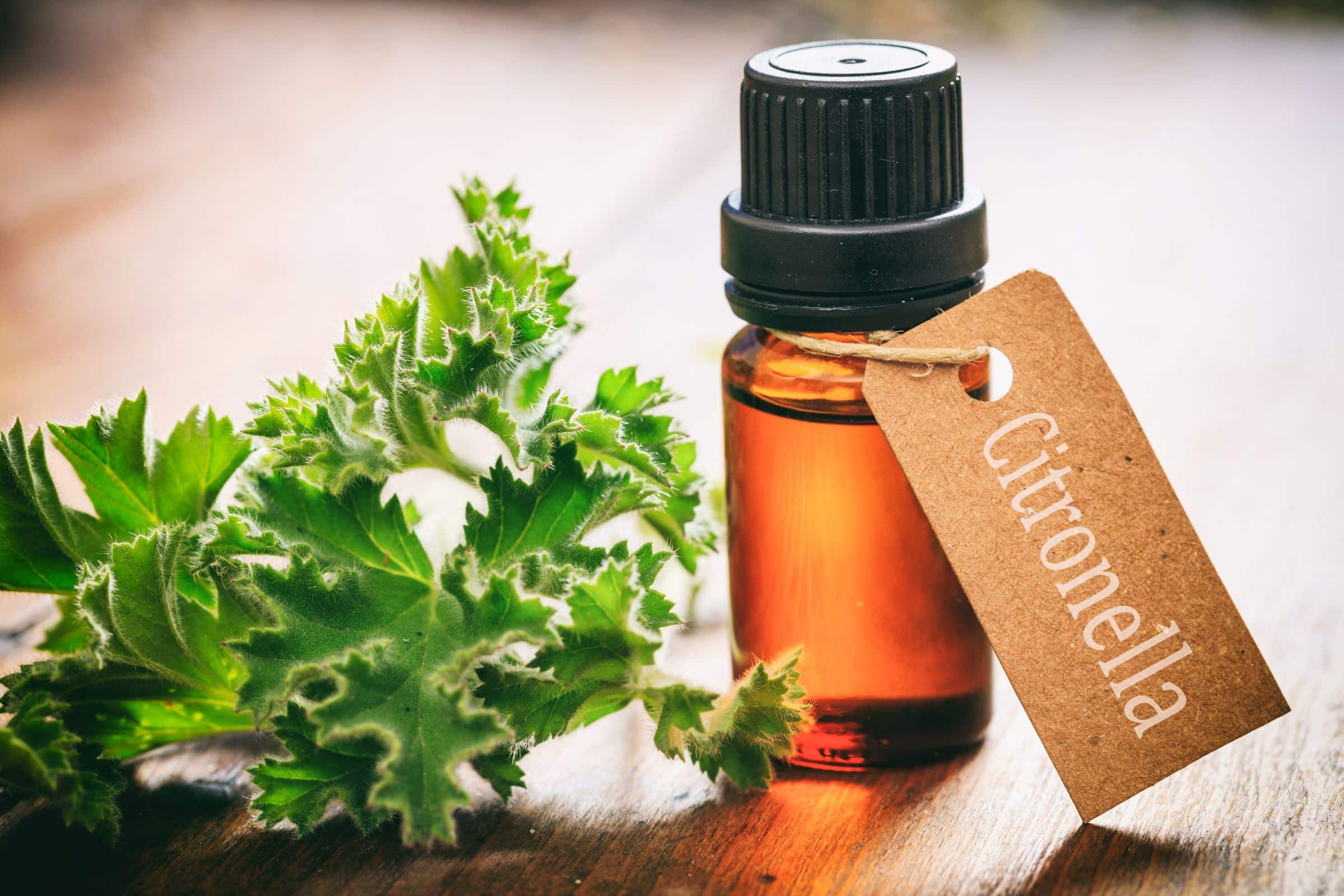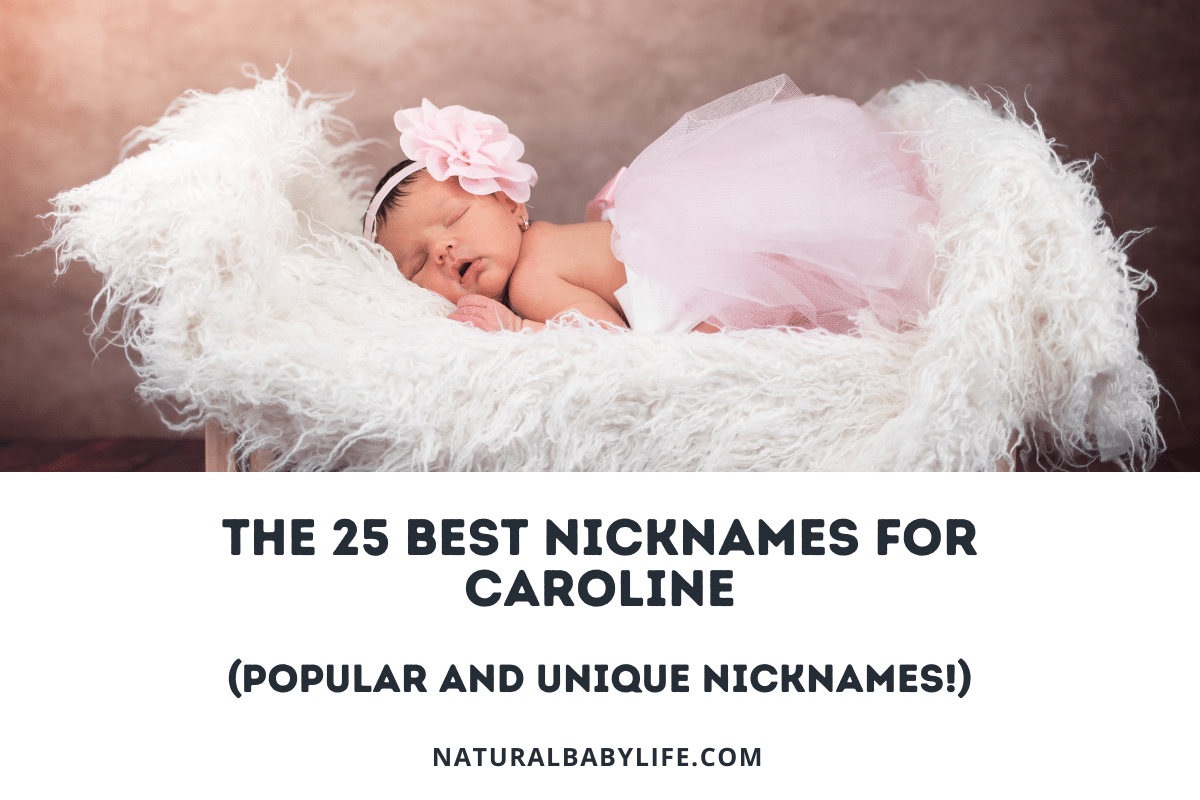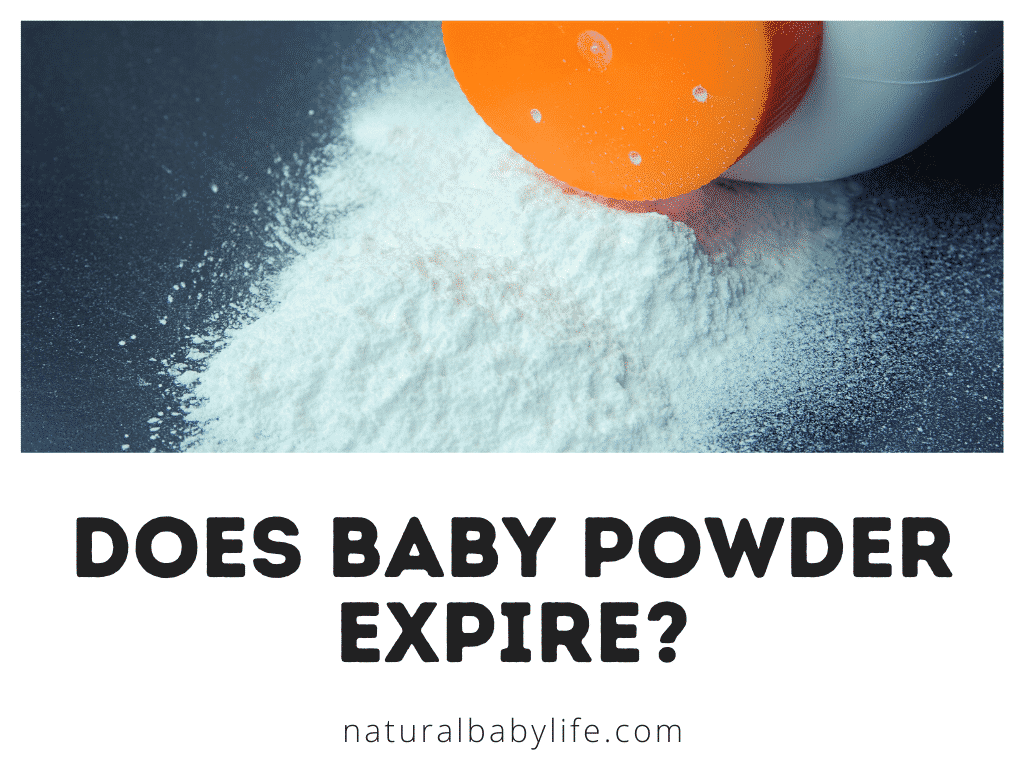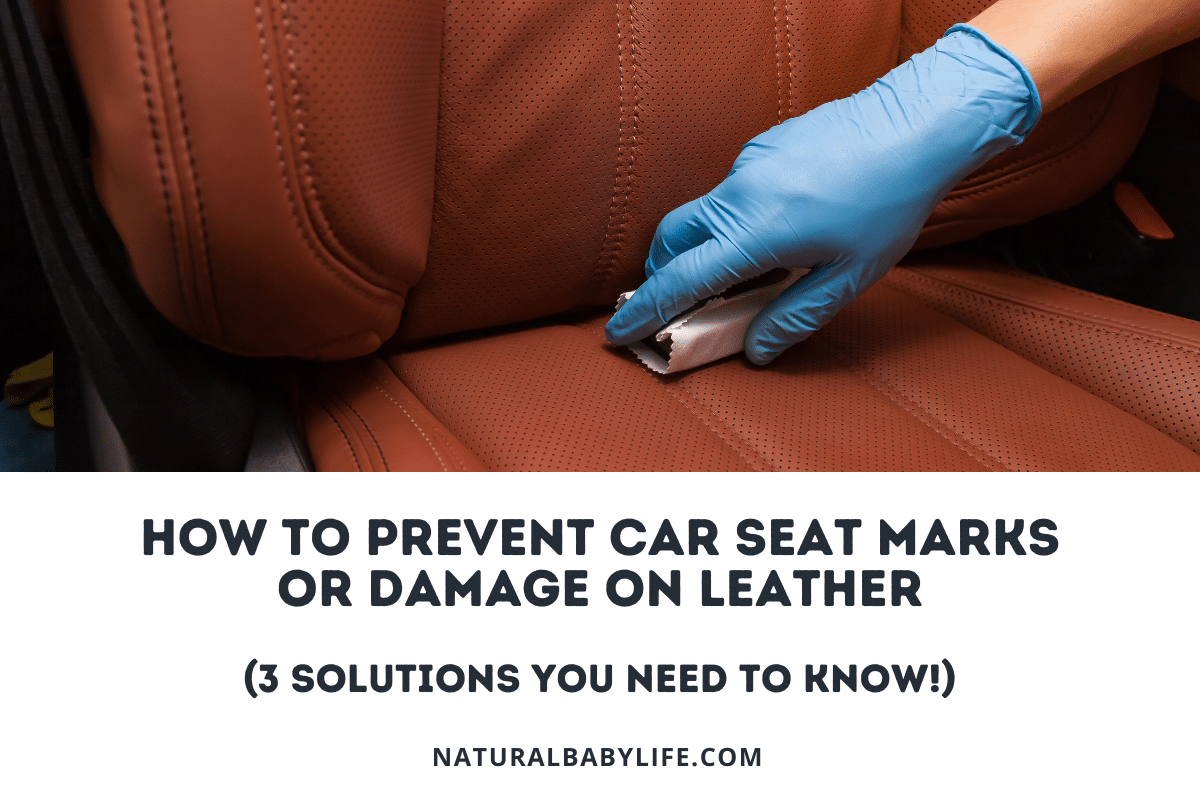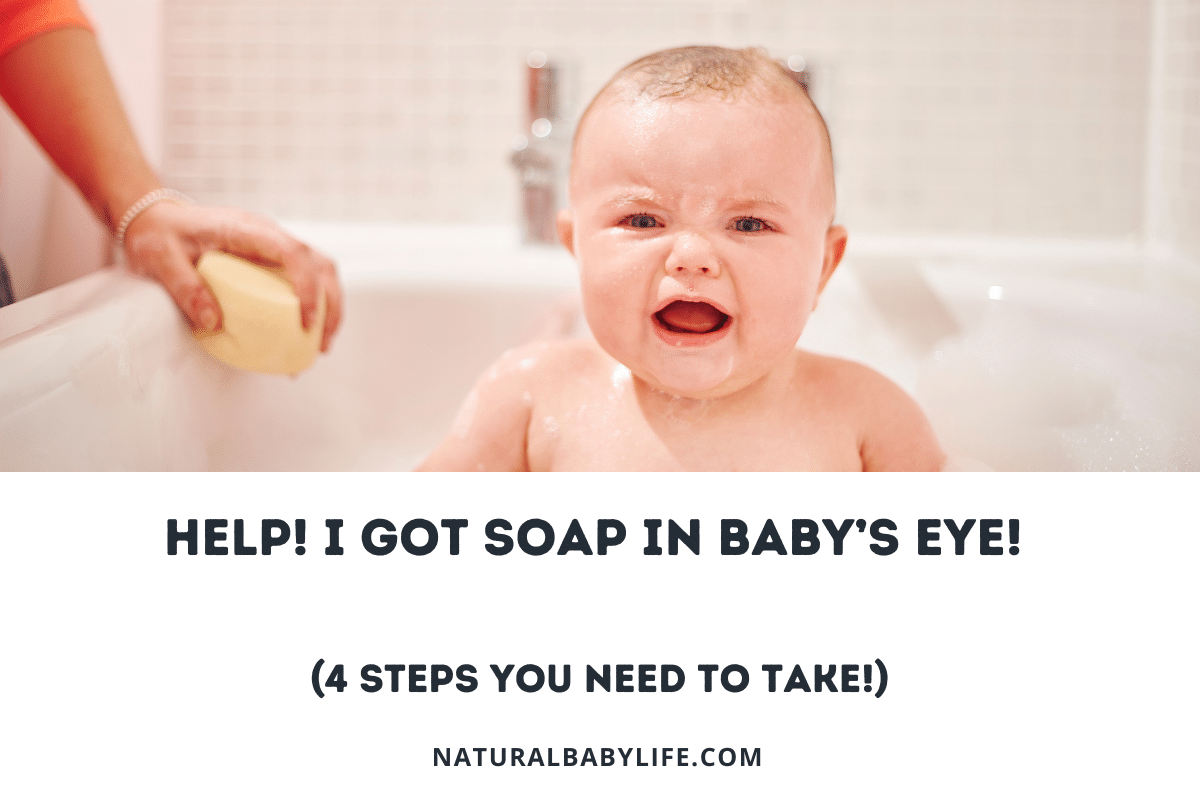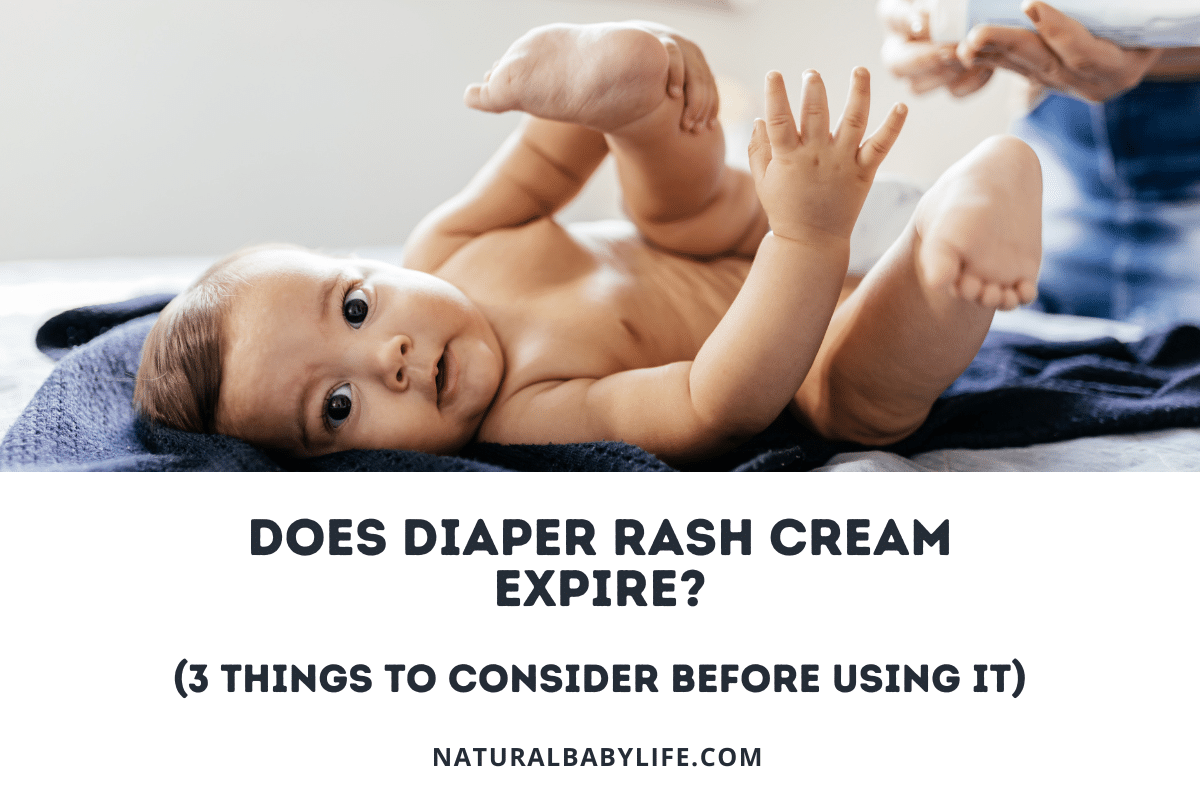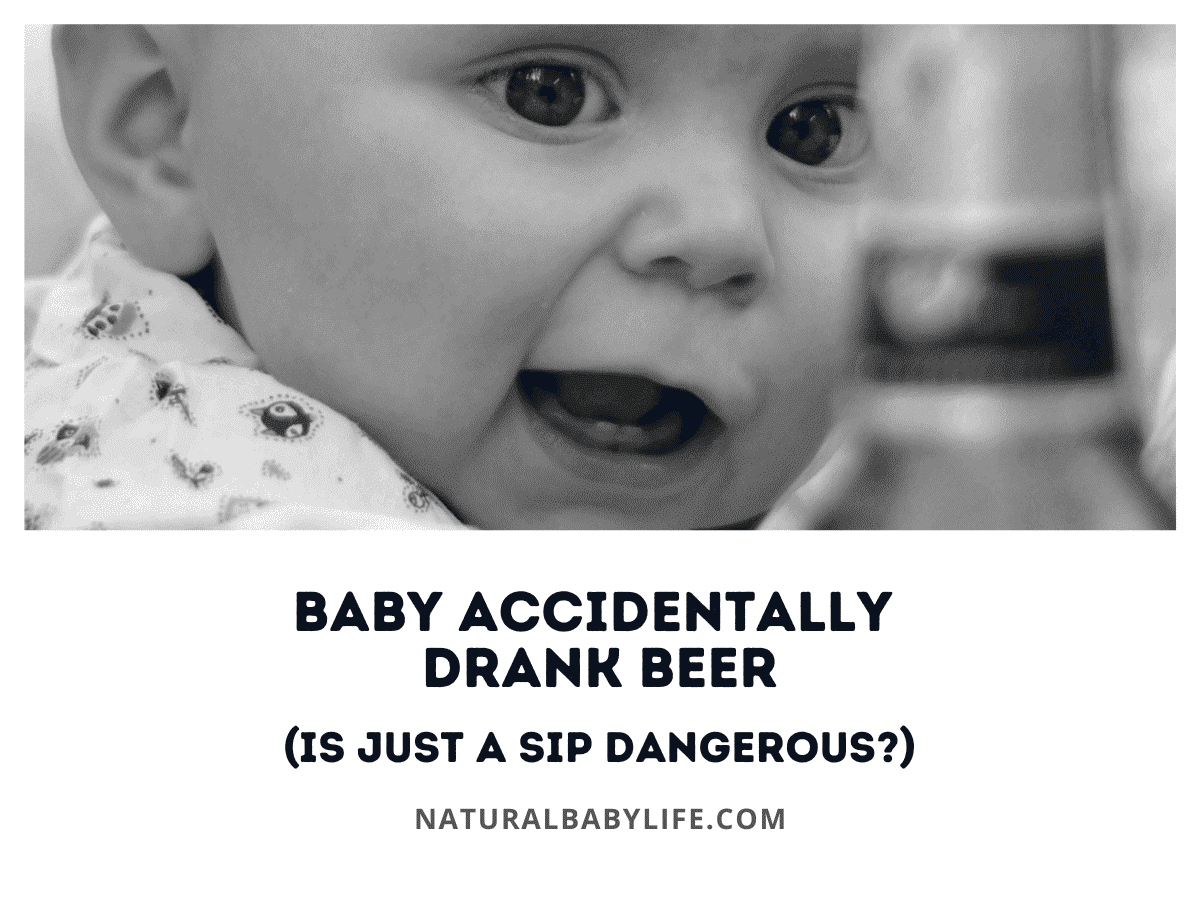Summertime in the Southeastern United States is famous for its flying insects and other bugs and every year my family is on the hunt for something to keep them at bay. When it comes to mosquito repellents, citronella has been a popular choice for years. However, you may be wondering: is citronella oil safe for babies?
The answer might not be a straight “yes” or a “no.” It’s crucial for parents to weigh the benefits and drawbacks when considering mosquito repellents and consult with their healthcare providers to make informed choices. By doing so, you’ll be able to create a safer environment for your little one, keeping them well-protected from the buzzing nuisances known as mosquitoes.
While citronella has its merits, it’s important to note that it can cause skin allergies or irritate a baby’s airway. Pure citronella oil is quite strong for a baby’s sensitive skin and may not be the best option when looking for mosquito repellents to keep those annoying insects at bay. So, what’s safe for babies to use as a means of protection?
Research shows that citronella is reasonably safe for babies under normal circumstances, but shouldn’t be used on those less than six months old. There have been documented short-term side effects such as allergic reactions and irritation and long-term studies suggest that repeated, heavy exposure to the skin could have negative effects.
Before delving into various mosquito repellents, it’s crucial to arm yourself with knowledge of their safety and efficacy. Top resources used for this post include product fact sheets, pediatric recommendations, and scientific studies to help equip you in choosing the right safety products for your child. From repellent patches and bands to baby-friendly creams, your options are vast.
If you want to learn more about the safety of citronella oil for your baby, read on to see the questions I had and my personal experience using it to protect my family.
Table of Contents
Is Citronella Oil Safe for Babies? Exploring Mosquito Repellents
Anytime we are looking at how safe a product is for our babies, things can get complicated quickly. There are so many variables and it’s impossible to say with any certainty that anything is truly safe in all situations, at all times, for all babies.
As a parent, I don’t want to take any unnecessary risks with any of my children so I’m always trying to look at a problem from all of the angles to determine the best solution.
In this case, it looks like citronella oil is generally safe for humans, even babies, when used as intended.
The EPA currently considers the oil to be on the list of minimum-risk pesticides which means it doesn’t consider it dangerous enough to test. It’s also a ‘Generally Recognized as Safe’ food additive by the FDA and is often found as a flavoring agent in foods and beverages because of its unique aroma. In Canada, however, it is recommended that citronella be phased out of use in commercial products that are applied to the skin because trace amounts of methyl eugenol in the oil have been shown to be carcinogenic in animal studies.
A safer alternative to citronella oil is lemon eucalyptus, due to its natural properties and fewer chances of causing birth defects when used cautiously. However, this doesn’t mean it’s the ultimate solution. It’s essential to consult with your healthcare provider before using any insect repellents on young children. Their expert advice will help you make the right decision for your baby’s safety and well-being.
When considering mosquito repellents for your little one, it’s essential to take your child’s age and specific needs into account. Some repellent patches or bands might not be suitable for certain age groups. So, remember to carefully read the labels of these safety products to ensure they’re appropriate for your child’s use.
Furthermore, mosquito repellents come in various forms like creams, sprays, roll-ons, lotions, and more. Which one you choose for your baby is up to you, but always remember to patch-test any new product on a small area of their skin before full application, as their skin is sensitive and prone to reactions.
It’s key for parents to balance the risks and benefits of different mosquito repellents – including citronella – to find the best option for their child. Reducing mosquito exposure is crucial, especially in areas with a high risk of mosquito-borne diseases or during peak mosquito activity. When it comes to getting bit by flying insects, especially mosquitoes, the danger can be extremely high. Mosquitoes can be carriers of some extremely dangerous diseases and, in most cases, they are going to be a bigger threat than any kind of repellant that you might be using.
At the end of the day, you’ll need to make your own decision about what you use for your little one!
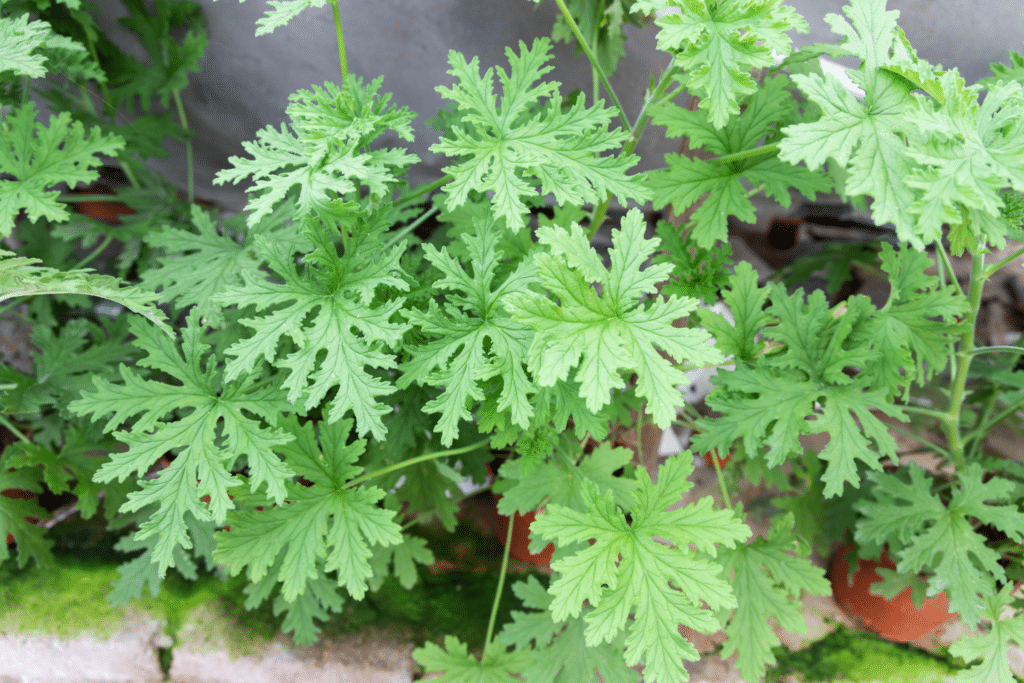
What exactly is citronella oil?
Like many natural oils and products, citronella oil is plant-based and comes directly from nature itself. In this case, citronella as we know it is actually a combination of a few different naturally-occurring oils found in a few different families of plants and grasses.
The big three oils are geraniol, citronellal, and citronellol and the oils of different plants contain varying percentages of these, leading to differences in effectiveness.
When most people think of citronella plants, they usually picture the Citronella geranium with its distinctive leaves and aroma. You’ll find these potted up and ready for sale in most home improvement stores around the beginning of summer in the South, marketed as an insect repellant that you can have living on your front porch!
Interestingly, the oil from this plant doesn’t contain a drop of citronellal, one of the big three components I mentioned earlier, and studies have repeatedly shown that despite being called the ‘mosquito plant’ it probably doesn’t work at all.
Most commercial citronella oil actually comes from two varieties of lemongrass that contain the complete triad of oils that we’re looking for in a complete package. They are commonly planted in and around vegetable gardens for, you guessed it, repelling insects! Unfortunately, just like the ‘mosquito plant,’ they won’t do much for you if you just plant them near your front porch.
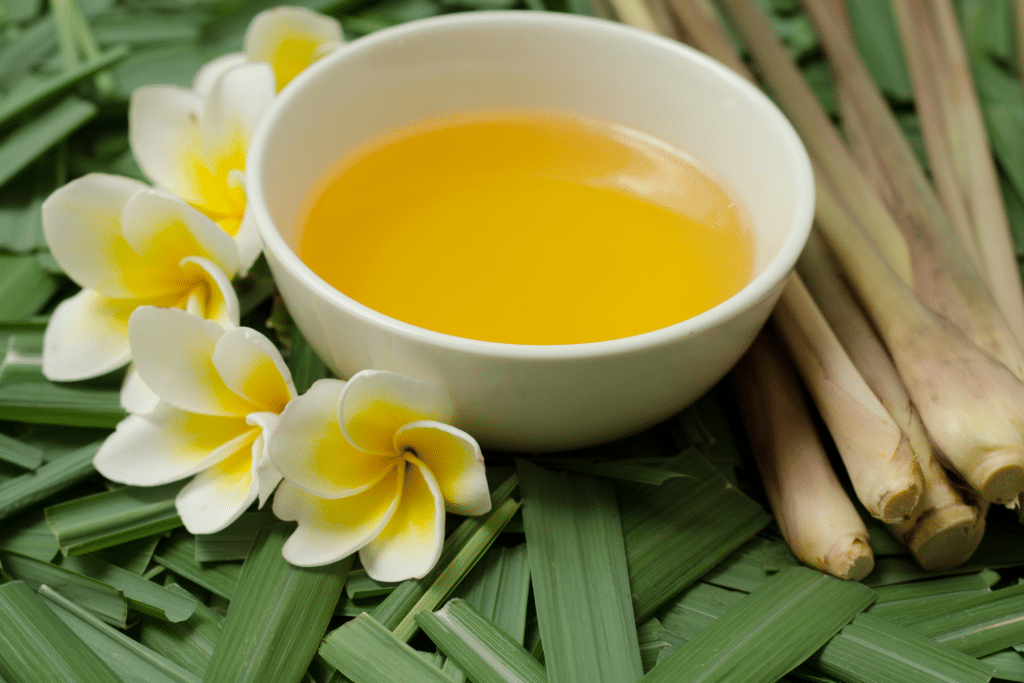
Understanding the Effects of Citronella on Baby’s Skin
Citronella oil is derived from the leaves and stems of the citronella plant, which is known for its natural insect-repelling properties. However, as with any substance, it’s essential to consider how it might affect your baby’s sensitive skin before using it on them.
While it’s rare, some babies may develop skin allergies or reactions to citronella oil. These reactions can include redness, itching, and even swelling in severe cases. This is particularly concerning if your baby has sensitive skin or a history of skin allergies, as they may be more prone to experiencing a reaction from the use of citronella oil.
Another potential concern when using citronella-based products on your baby is the risk of airway irritation. Some babies might be more sensitive to the strong scent of citronella, which could potentially lead to coughing, wheezing, or other respiratory issues. This is particularly important if your baby has a history of asthma or other respiratory conditions.
Given these possible risks, it’s essential to consider alternative mosquito repellents for your baby. One option is to opt for a lower concentration of citronella oil or dilute it with a carrier oil like coconut or jojoba oil. This can reduce the risk of skin irritation and airway issues, while still offering some protection against mosquitos.
Are Citronella-Based Products Safe for Babies and Infants?
Citronella is a natural oil extracted from plants and used in various products like candles, sprays, and lotions. The good news is that citronella-based products are generally safe for babies and infants. However, it’s essential to be aware of a few factors and use them correctly to avoid any harmful effects on your little one.
Firstly, it’s important to choose a product specifically designed for infants. Many insect repellents contain chemicals that could be harmful to babies, so it’s vital to check product labels and opt for those specifically designed for infants’ safety in mind. Look for repellents with a lower concentration of citronella oil, which is usually less irritating for young ones.
Another essential factor to consider is the method of application. For example, citronella candles and sprays can provide a protective barrier against insects without directly applying the product to your baby’s skin. However, be cautious when using sprays near your infant’s face or around their eyes, nose, and mouth, as inhaling the product could be harmful.
If you decide to use a citronella lotion or cream on your baby, always conduct a patch test to ensure their skin does not have an adverse reaction. Apply a small amount of the product on their forearm and monitor the area for any redness, swelling, or itching. If your baby does exhibit any signs of irritation, discontinue using the product immediately.
Besides citronella-based products, there are other safe and natural alternatives for infant mosquito protection. For example, DEET is an effective insect repellent that is considered safe for use on babies older than two months. However, it’s essential to choose a product with a low concentration of DEET (<30%) and consult your pediatrician for guidance, especially during pregnancy.
Additionally, dressing your baby in protective clothing, such as lightweight, long-sleeved shirts and pants, can also help keep mosquitoes at bay. Installing screens on windows and doors to keep insects out of your home is another excellent option for minimizing exposure to mosquito bites.
In summary, citronella-based products are generally safe for babies and infants when used appropriately. Ensure you select a product designed for this age group, apply it properly without causing harm, and consider other alternative insect repellents for added protection. Remember always to consult with your pediatrician when you’re unsure about any product or method for your baby’s safety this summer.
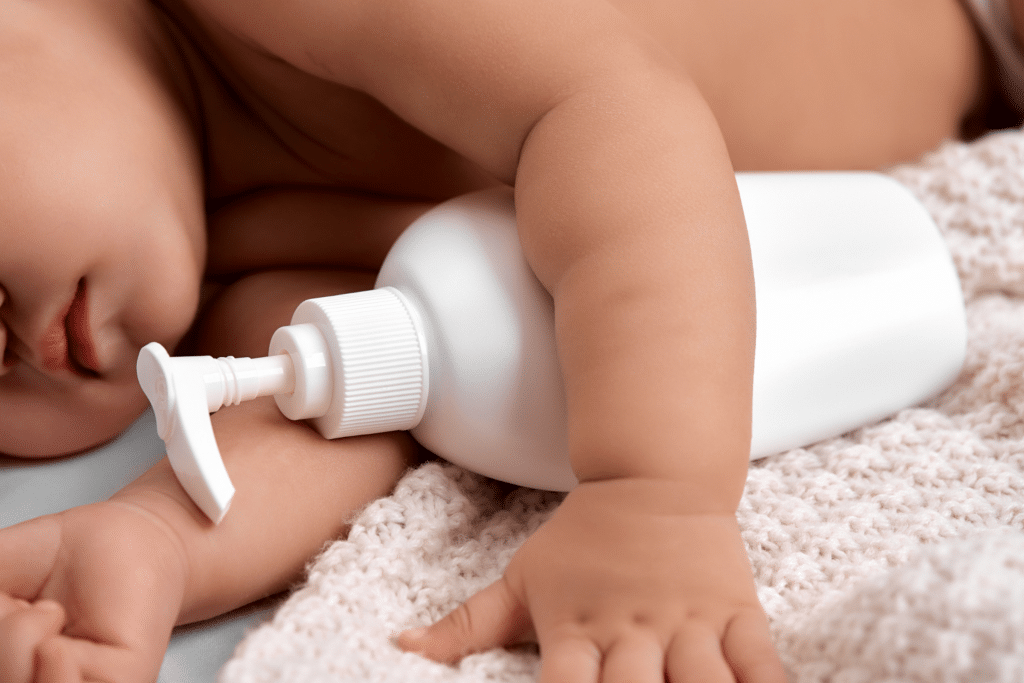
Does citronella oil actually keep insects away from babies?
When it comes to the insect-repelling properties of citronella oil itself, studies and anecdotal evidence are mixed. While some people swear by using the candles or torches in their backyard, for instance, other people claim they are totally useless. The oil is meant to work as a repellant by confusing insects that are looking for a target to feed upon. The idea is that if they can’t smell you, they won’t be able to find you to bite you.
Let’s look at the two major categories of citronella-based insect products that you’ll find in the store and see what the consensus is:
Oils and Lotions
Citronella oil, a popular natural insect repellent, is extracted from the leaves and stems of the Cymbopogon plant. It is a common ingredient in many lotions and oils marketed as baby-safe alternatives to synthetic insect repellents. When using citronella oil on your baby’s skin, it is important to dilute it with a carrier oil, such as coconut oil or almond oil, to prevent irritation. For a gentle but effective blend, add a few drops of citronella essential oil to an ounce of carrier oil.
While citronella oil is deemed safe for babies when used in proper dilution, some studies have been conducted on its efficacy in preventing head lice in children. However, it’s always wise to consult your pediatrician before using any essential oils or plant-based products on your baby’s skin.
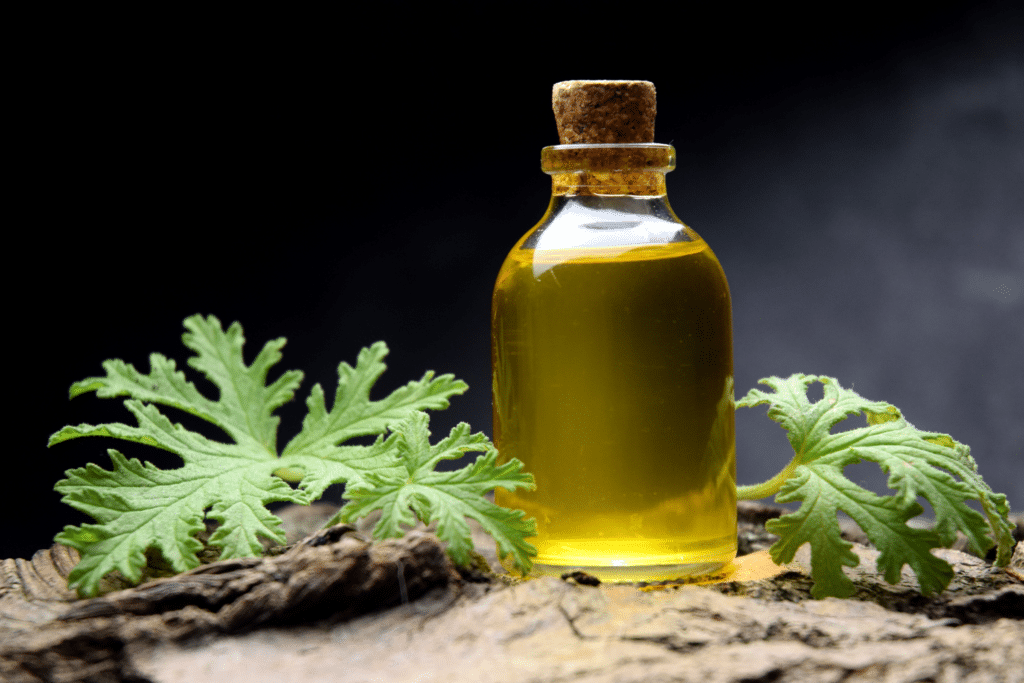
Candles and Diffusers
Citronella candles and diffusers are another popular and natural way to repel insects and create a comfortable environment for your baby. These products use the masking scent of citronella oil to make it difficult for insects to locate their target. When using citronella candles or diffusers around your baby, it is important to place them in well-ventilated spaces to minimize the risk of accidental ingestion or inhalation of citronella oil.
While citronella candles and diffusers are considered safe for use around children, their effectiveness as insect repellents relies heavily on the quality of the citronella oil being used. High-quality citronella oils tend to provide better protection against bugs.
By choosing carefully between oils, lotions, candles, and diffusers, you can provide a safe and natural way to protect your baby from bug bites and enjoy a more comfortable outdoor experience together.
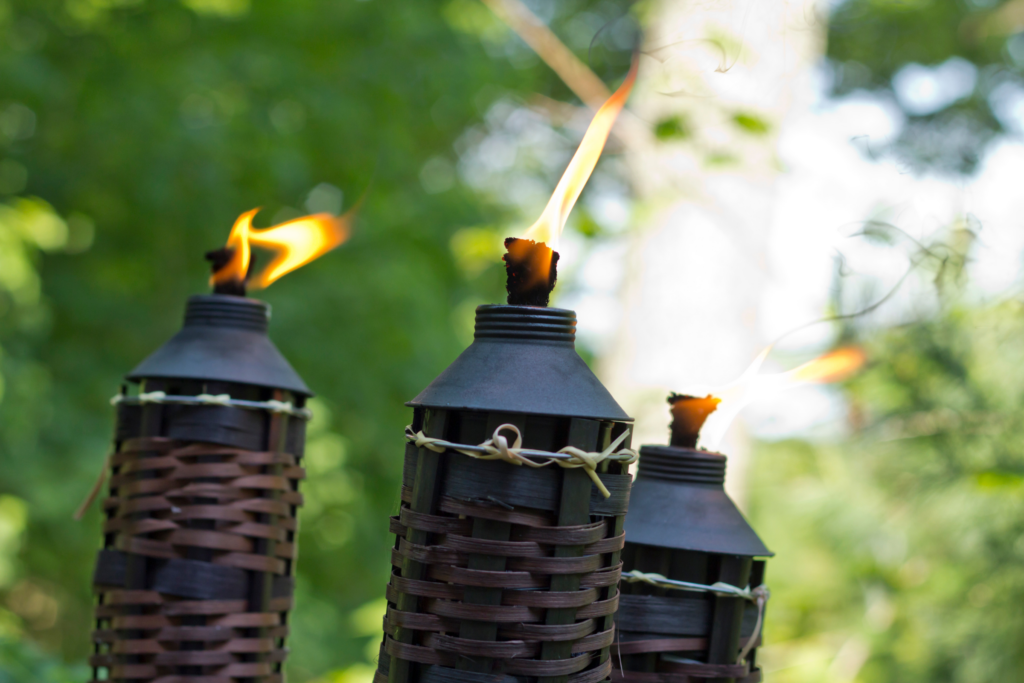
When can babies actually use citronella oil?
When it comes to the safety of citronella for babies, various authorities have their own recommendations. The Environmental Protection Agency (EPA) in the United States considers citronella oil safe for use as an insect repellent. However, they do not recommend using citronella products on children under 3 years of age.
In Canada, the use of citronella-based repellents is regulated by the government, and it is approved for use on humans of all ages but with certain guidelines. The Food and Drug Administration (FDA) also acknowledges citronella as safe but recommends following usage instructions and consulting a doctor if you have any concerns.
Nearly any product you’ll find with citronella in the ingredients list will recommend that it shouldn’t be used on children less than six months old unless a doctor tells you to do it. Babies generally have more sensitive skin than adults and even older children so this recommendation is to help prevent any potentially harmful allergic reactions that an infant might not be able to handle.
If you do decide to use citronella oil on your baby, be sure to follow the directions and only use the minimum amount required to get the job done. Be careful not to let your baby play with the spray bottle, lotion container, or candle because they are likely to try and eat it!
You would be surprised how quickly an older baby can figure out how to use the pump on a sprayer and start sucking down the solution!
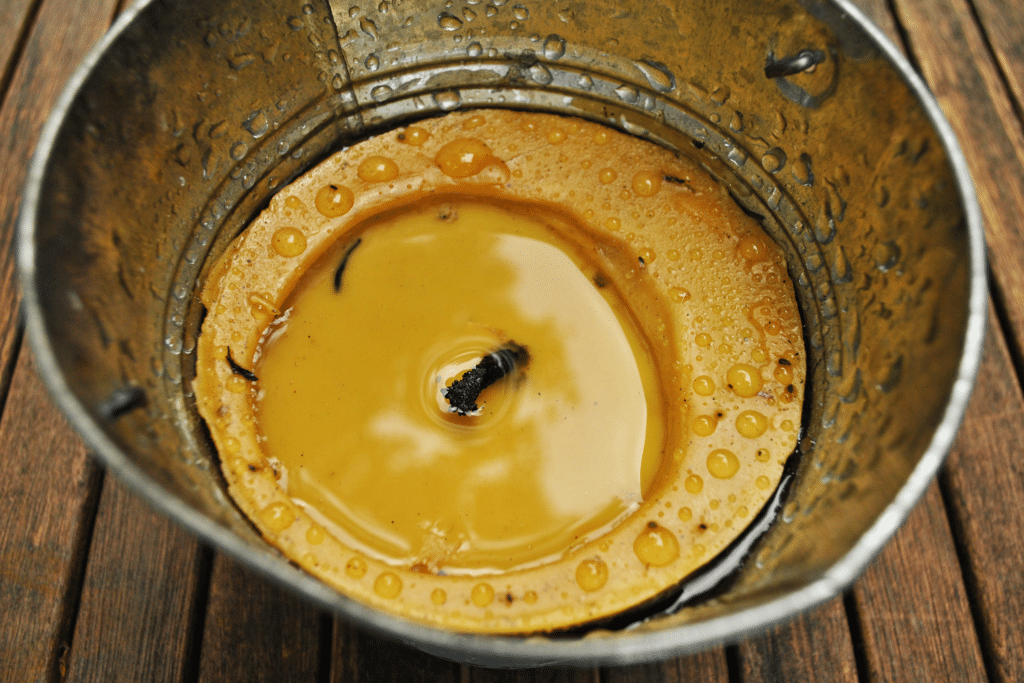
Citronella Safety Precautions and Possible Side Effects for Babies
Citronella is derived from plants of the Cymbopogon genus, commonly known as lemongrass. While citronella products like candles, oils, and lotions are generally considered safe, there is a possibility of allergic reactions or skin irritation for certain individuals, including babies. To minimize the risk of an allergic reaction, always perform a patch test on a small area of your baby’s skin before using citronella products.
Symptoms of skin allergies:
- Redness
- Itching
- Skin irritation
- Pain
Citronella sprays and candles can also cause irritation or discomfort to the eyes, nose, and throat. To minimize these risks, make sure the candles are placed in a well-ventilated area and avoid direct contact with your baby’s face.
Ingestion and Environmental Risks
Ingestion of citronella oil or products is not recommended, as it can pose serious risks, especially to young children. If a baby accidentally ingests the oil, it can cause nausea, vomiting, and throat irritation.
Keep citronella products (candles, oils, lotions, and plants) out of reach of children to avoid the risk of ingestion or exposure to toxic substances. If your baby does ingest any citronella, seek immediate medical assistance.
In terms of environmental risks, citronella candles may cause respiratory irritation for babies when used in closed spaces. It’s important to ventilate the area and avoid using citronella near your baby’s sleeping or play areas.
In conclusion, citronella can be safe for babies when used with proper precautions. However, it is crucial to monitor your child closely for any signs of irritation, allergic reactions, or health issues while using citronella products.
Short-term side effects of use
In general, short-term side effects include irritation to the area of exposure. This could include the eyes, throat, and nasal passages when inhaling citronella smoke from a candle or torch. It could also include the skin when using lotions or sprays that include the oil.
As when using any new product on your baby, keep a close eye out for any reactions that seem out of the ordinary. A little irritation or redness will likely go away if you stop using it, but it’s probably best to see a doctor if it seems to get worse or if you see major signs of allergic reaction like difficulty breathing.
Longer-term side effects and studies
There have been some longer-term studies on citronella safety for babies and humans in general. The major component oils of citronella, geraniol, citronellal, and citronellol, have all been shown to be safe in animal studies.
Geraniol, in particular, has actually been shown to reduce the growth of some cancers in several studies.
As I mentioned before, however, trace amounts of methyleugenol are often found in commercial citronella oil products and this compound is ‘reasonably anticipated to be a human carcinogen’ because it caused the development of tumors in mice.
Citronella Alternatives for Babies
When considering insect protection for your baby, it’s important to look for safe and effective alternatives to citronella-based products. While citronella candles, oils, and lotions can help keep mosquitoes and other insects at bay, they may not be the best option for babies due to the potential for skin irritation or other adverse reactions.
One effective alternative to citronella is a repellent containing DEET. While DEET-based products have been deemed safe for use by many authorities, it’s important to choose a product with a lower concentration of DEET (10% or less) for young children, as higher concentrations may pose risks.
However, if you prefer to avoid DEET altogether, several natural options can still offer protection for your baby. Essential oils such as lemon eucalyptus, peppermint, and lavender can provide protection against mosquitoes while also offering a soothing scent. For added safety, dilute the essential oils using a carrier oil, as some of these plant-derived oils can be potent and cause skin irritation in sensitive individuals.
In addition to essential oils, certain grasses can work as natural insect repellents. For example, lemongrass is a natural source of citronella and can be planted around your outdoor space to help deter mosquitoes. Ensure to keep children and animals away from the plant, as it can be toxic if ingested.
Moreover, when outdoors, you can protect your baby by dressing them in appropriate clothing, such as lightweight long sleeves and pants, to minimize exposed skin. Opt for light-colored fabrics, as darker colors may attract more insects. You can also use netting for strollers and playpens to keep insects at bay.
Remember to carefully read and follow the label instructions on any insect repellent product you choose for your baby, and consult with your pediatrician or healthcare professional if you have concerns or questions about using these products safely. By doing your research and selecting from these alternatives, you can effectively protect your baby from insect bites without relying on citronella.
Consulting a Pediatrician
When it comes to the safety of citronella products for your baby, it is always a good idea to consult your pediatrician or an expert in the field. They will be able to provide the most up-to-date and accurate information regarding the use of citronella candles, oils, lotions, and plants around your little ones.
Your pediatrician will likely tell you that citronella products are generally safe for children over 2 years of age. However, caution should be exercised when using these products around younger babies. The American Academy of Pediatrics recommends using citronella products on children aged 2 years and older, while avoiding their use on babies under this age.
Based on your child’s age and specific needs, your pediatrician may recommend alternative methods for repelling insects, such as using a mosquito net, avoiding the outdoors during peak insect hours, or dressing your baby in long-sleeved clothing and pants.
Remember that it is crucial to follow your pediatrician’s expert advice and only use products that are approved for your baby’s age group. By consulting with your pediatrician and following their guidance, you can be confident in providing a safe and comfortable environment for your little one.
Conclusion
Overall, it looks like citronella is generally safe for babies over the age of six months in most normal situations.
Despite the fact that there is some risk to applying the oil to the skin, it’s much more likely that you’ll be rubbing some on your baby for an hour in the evening while the family plays outside than all day, every day throughout the summer.
When babies play outside for long periods of time you are going to have to worry about sun exposure long before you’ll need to worry about extra bug spray.
Of course, if you are down South like me, insect repellant is a must at certain times so be sure to make your decision about what to use before it’s time to head outside – you don’t want to go out with zero protection!

